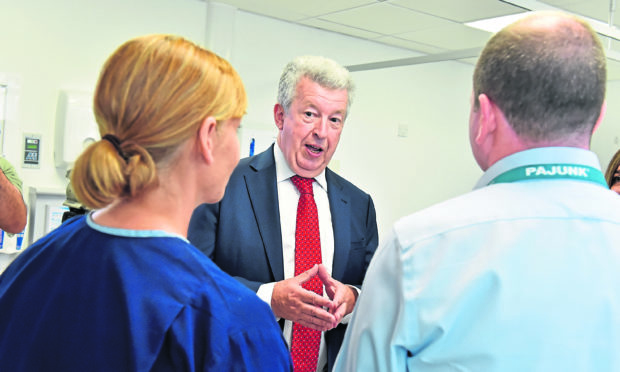Demand for health services across Scotland is at an “all-time high” and the pressures will only increase, a report has warned.
Papers to be presented to the Aberdeen Health and Social Care Partnership (AHSCP), a collaborative body with the NHS, council and charities, will next week detail the level of challenges faced.
The report says that with an ageing population demand for health services is already at an “all-time high” and that the cost of agency and locum staffing in the north and north-east is significantly higher than the rest of the country.
Vacancy rates for consultants, nurses and other health professionals is also rising – with NHS Grampian having 9.1% of posts unfilled.
The report reads: “Supplementary Staffing is increasing due to the challenges around recruitment and retention, sickness absence and pressures to meet waiting time targets and other service pressures and is a significant cost pressure.
“There is a significant variation in spend across Scotland with the north region highest at £43 per 1,000 population compared to £27 and £23 per 1,000 population in the east and west of Scotland respectively.
“Some boards have managed to reduce their costs, but this remains a challenge in a number of areas, including Grampian.”
One area in which there have been successes is in regards to drug costs, which are reducing as health bosses look for generic variants and new collaboration between health and council bosses in areas like social care is also bringing down costs.
Earlier this month the Press and Journal revealed that crumbling hospitals in the north and north-east need more than £1 billion worth of repair work in coming years.
Hospitals in the area now contain 66% of all the “high risk” problems identified at health service buildings across Scotland.
And the majority of the backlog is at three hospitals – Aberdeen Royal Infirmary, Raigmore Hospital and Ninewells in Dundee.
North-east Labour MSP Lewis Macdonald, who sits as the convener of Holyrood’s health and sport committee, said his committee had recommended three major strategies to ensure health services continue at the same level in the future.
He said more technology should be introduced to allow easy access to patient medical records and called for more integration between the NHS and councils and a further emphasis on preventing ill health rather than focussing on curing it.
He said: “There is a lot of things that need to happen to ensure the health service can keep delivering the level of services that people are entitled to expect into the future.
“People are living longer and when they do reach the end of their lives they often have more complex health care needs. This trend is irreversible.
“At the health and sport committee we have made a number of recommendations.
“There is a lot that the government is already doing but there are still some areas that progress could be made in.”
